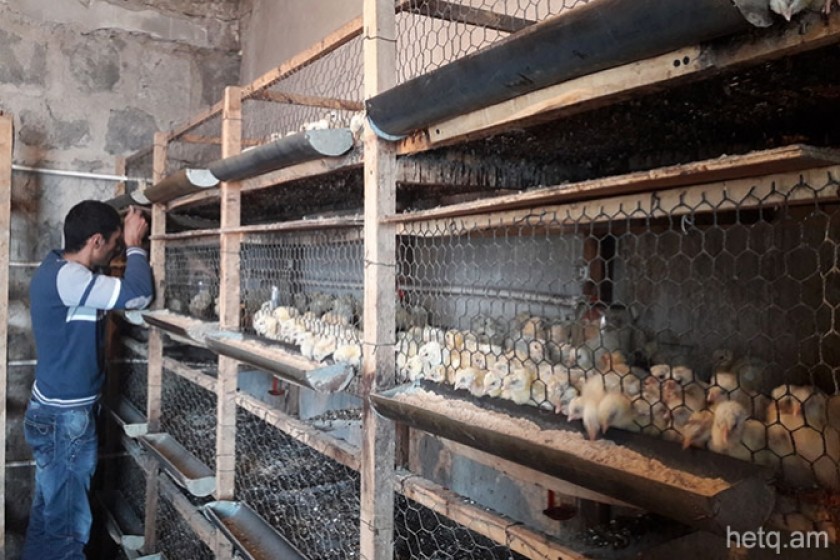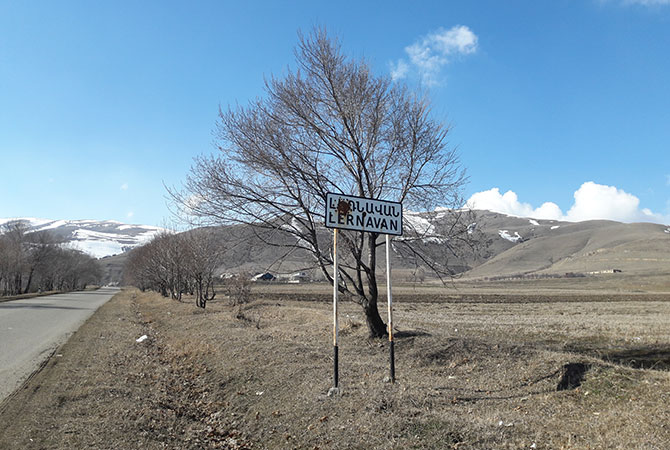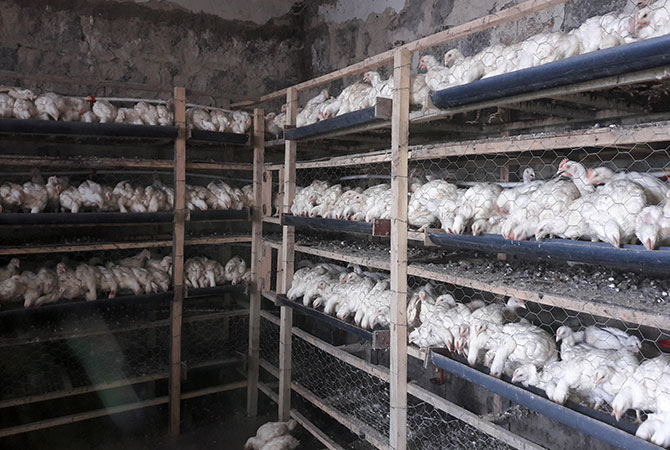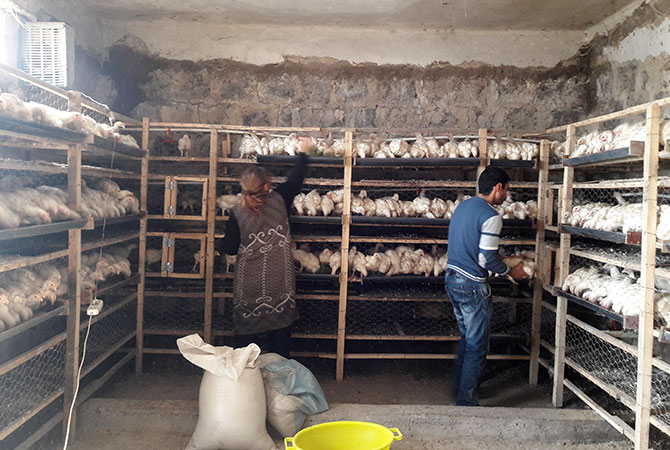
Breaking Stereotypes: Tired of Working in Russia, Hamlet Launches Successful Poultry Farm in Native Village
27-year-old Hamlet Mazmanyan, resident of Lernavan village in Armenia’s Lori Province, could serve as a role model for many young people in Armenia.
Working abroad for several years, he finally decided to start his own poultry farming business so that he could in his native village with his family. Despite the difficulties, Hamlet is sure that working in the village can be successful.
Unfortunately, not many in Lernavan are following his example. When we arrive in the village, we notice groups of men idly standing by. When we ask the young man escorting us to Hamlet’s house if they have anything to do, he says there’s nothing to do in the village and all the men are preparing to leave for work abroad.

We soon hear the cackling of chickens. Hamlet and his mother exit the chicken shed They look tired, hot and sweaty from working.
There are around 1,000 birds on the farm. The whole process of raising and selling chicken is managed by the family members - Hamlet, his wife and parents.
"I had been leaving for Russia like everyone else for four years. I was already sick and tired of it. Four years were enough to realize that there was no future and no prospect there," Hamlet says.
His father’s experience also affected his decision, since he grew up seeing his father only a few months a year.
"My father went to work abroad before and after getting married. He’s not the only one. It’s already a tradition that youngsters should leave for Russia once they finish school," says Hamlet.

Many of those who left to work abroad did not return, and some of them took their families with them.
"If we go out now, I’ll show you the empty houses one by one. It’s terrible. All the houses are empty in that direction, " says Hamlet and names the ones who have left the village.
The decision to raise chickens was taken after years of field study. Despite the theoretical knowledge, he has had many failures in practice.
"At first, there were only failures. While I was trying to analyze the reasons of the first failure, I failed the second time, and so on. At the beginning, all the chickens were dying, " Hamlet jokes.
Hamlet says he went to other poultry farmers for help, but they provided facts he already knew, keeping the most important details a secret. Hamlet learnt about the decisive nuances due to his own failures and experiences, and he says he’s now ready to help anyone who wants to get engaged in this sphere.

Hamlet believes that the lack of knowledge of farmers ultimately determines the lack, or slowness, of progress in various branches of agriculture.
"Villagers have little knowledge of agriculture, farming, livestock and poultry farming. People do as they can. They need to be educated. There are many young people who do not know what to do and where to start. There is no government plan or assistance to guide the village youth,” says Hamlet.
I ask if fertilizers and seeds subsidized by the state are not assistance.
"Actually, I don’t think these prices are subsidized. They increase the prices, then lower them to normal, calling it a subsidy. A bag of nitrogen fertilizer is said to be subsidized when it’s being sold for 7,000 drams. If this is a subsidy, then I do not know what a subsidy is. As for agricultural loans, their rates are high, and farmers must pay them back in a very short time. The amount of subsidized loans is very small. Once you learn about them, they’re over.”

Hamlet is constantly learning, trying to maintain the best conditions for raising poultry.
"Corn, wheat, barley, green peas, soya, oil residues, sunflower seeds, fish powder, stock powder, yogurt, kefir- that’s the main food of my chicken. The only complaint mentioned by buyers is the small weight of the chickens - 1.0-1.3 kg each. It’s because I have too many orders and I can’t afford to raise them for a longer period. I also don’t want to make them bigger artificially,” says Hamlet.
He’s sure that sooner or later consumers will start valuing the local, high-quality products without additives.
"The sooner people realize they need healthy nutrition, the quicker the state of agriculture will improve in the country. The sooner we realize that by supporting the local producer we are contributing to creating new jobs, the better,” Hamlet concludes.
 Videos
Videos Photos
Photos
Comments (9)
Write a comment